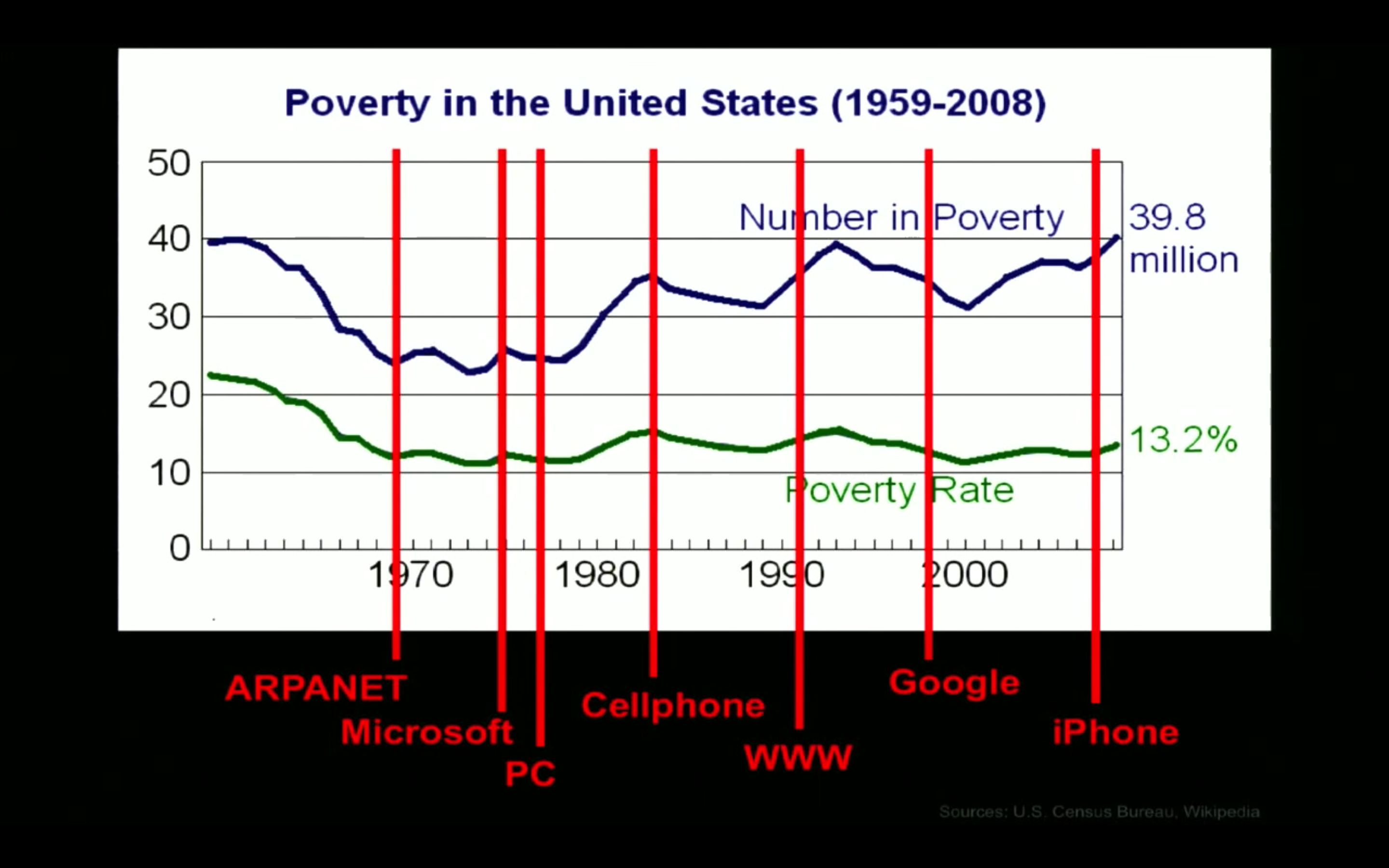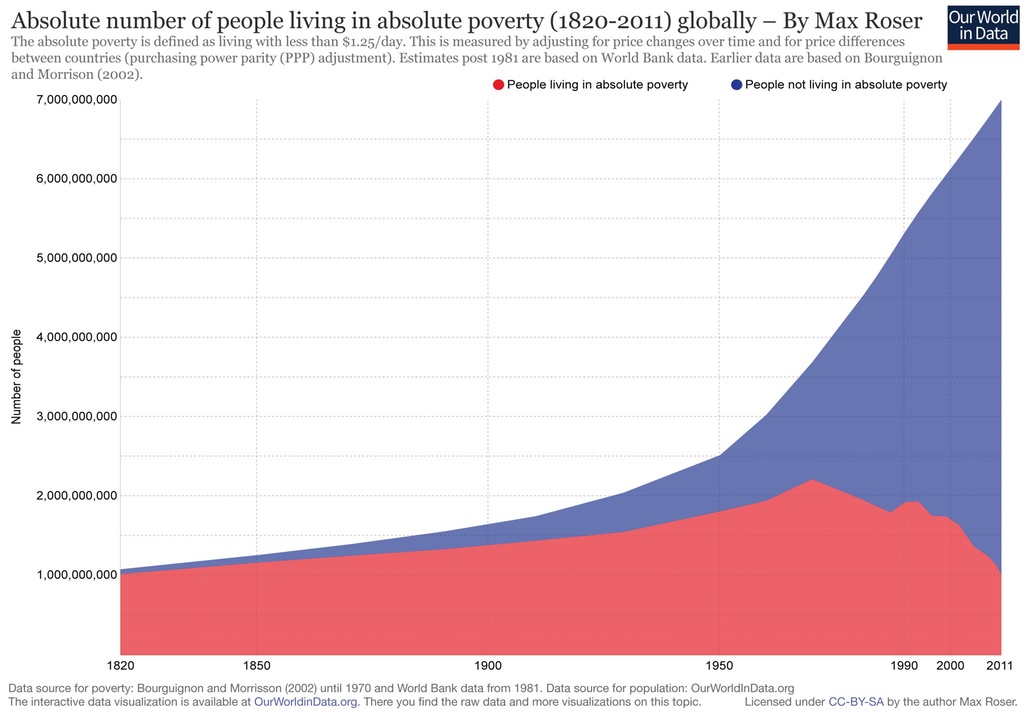In my job interviews earlier this year I had the opportunity to speak with many interesting people. I posed the following question to several of my interviewers:
Do technological innovations [that computer scientists produce] benefit society as a whole, or do they primarily improve the livelihood of people and institutions who are already well off?
Strikingly, I received a nearly identical response from three people I spoke to. Their response was something along the lines of the following:
“The innovations from computer science (are one of the few types of innovation that) trickle down”
In this blog post I seek to evaluate their claim.
Scoping the hypothesis
The question I posed was admittedly vague. What exactly did I mean by ‘benefit’, and how can we possibly make a statement about all technological innovations?
To scope the discussion, let’s focus on a more specific question:
Does progress in information technology correlate with an improvement in poverty rates?
We’d like to know, at a macroscopic level, whether IT helps people get out of poverty. Causation is difficult to argue, but if there is causation we should expect there to also be correlation.1
Data from the United States
In the following figure, Kentaro Toyama examines the data for the United States, using the federal government’s definition of poverty:

As we see, poverty rates in the USA haven’t budged since the early 1970s, and the absolute number of people living in poverty has actually gone up. This is despite huge advances in the proliferation of information technologies like the Internet, the world wide web, and smartphones.
From this, we can reasonably conclude that information technology alone has not had much of an effect on poverty numbers in the USA; there must be some other factors preventing such a large number of people from getting out of poverty.
Data from the World
The USA is just one country, and it is an anomalous country in many ways. Perhaps information technology does more to help the impoverished in the rest of the world? The remarkable chart below uses the World Bank’s definition2 for extreme poverty at $1.25 per day adjusted to purchasing power parity:

According to one reading, this data does not provide reason to doubt our trickle down hypothesis: there is a downward trend in the absolute number of people living in extreme poverty, which may be partially due to the proliferation of information technologies.
A less optimistic reading is that the decline in poverty numbers we see starting in the 1970s (well before the popularity of the Web) can largely be attributed to changes in the Chinese government’s polices, and, more recently, India’s own reforms starting in 1991.3 It seems entirely feasible that information technology played a negligible role in these transformations.
I’m not personally convinced that the innovations we (systems researchers) produce, which are often targeted towards the more privileged members of society, currently play a significant role in the socioeconomic well-being of the poor.
Caveats, caveats, caveats
My conclusion certainly does not imply that computer scientists should stop focusing on innovations targeted at the more privileged members of society. It’s very difficult to predict what kinds of impact our innovations will have; for example, the Apple engineers who developed the iPhone were explicitly targeting the rich, yet the popularity of the iPhone sparked a drive towards cellular data networks which are now the dominant mode of Internet in the developing world.
It’s also undeniably true that information technology positively touches the lives of the poor, even if the jury is still out on whether it can play a significant role in helping large numbers of them develop their socioeconomic well-being.
Personally, I’ve decided to pivot my direction away from high tech. I’m devoting the next year or two to understanding what role IT can play in the lives of the less privileged. We’ll see what I learn!
-
Strictly speaking, neither correlation nor lack thereof prove anything about causation. But most scientists probably think Hume was just being pedantic. ↩
-
The World Bank announced plans to move their definition of extreme poverty to $1.90 per day to recognize higher price levels in developing countries than previously estimated. ↩
-
See Chapter 2 and 6 of Angus Deaton’s “The Great Escape” for an in-depth analysis of this data. ↩